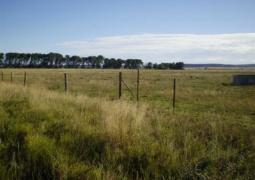
The Portfolio Committee on Rural Development and Land Reform concluded its public hearings yesterday in Worcester, in the Western Cape, on the amendment of the Restitution of Land Rights Act of 1994. The hearings began on 18 June.
The amendments seek to, among other things: develop and keep the National Land Restitution Register; amend the cut-off date for lodging a land claim for restitution; regulate the prioritisation of claims and the appointment of a tenure officer and the conditions and service of Land Claims Court; and to give the Minister powers of delegation and to repeal the Restitution of Land Rights Amendment Act of 2014.
Yesterday the committee held its last session in nationwide public hearings, which sought to get people’s views on the amendments. The Standing Chairperson of the Rural Development and Land Reform, Mr Phumzile Mnguni, gave some context to the relevance of public hearings to the work of Parliament. “A precedent has been set in this regard by the Matatiele and Doctors for Life cases in which the Constitutional Court ruled that Parliament had not done effective public participation in relation to them. We, as Members of Parliament, have learnt from that and we are here today to ensure that there is effective public participation with regard to the amendment of the Restitution of Land Rights Act of 1994.”
Our task as a democratic Parliament is to ensure that people participate in law-making processes and to make this process open and fair, rather than an arbitrary process, he said. “Public participation is enshrined in our Constitution. Under it, we are compelled to hear the views of the people so that whatever we do we must ensure that it is in the interest of the people. As Parliament, we don’t subscribe to the religious belief enshrined in Romans 13 that states that people must submit to those in power. As Members of Parliament, it is the public that oversees us.”
One of the chief objects of these amendments is to reopen land claims. This is due to the outcry about the number of land claims lodged before the claims process closed in 2016. “According to research, there are well over 1.7 million people who were affected by forced removals between 1913 to 1994. And the current number of claims won’t bring about land justice in this country. Hence we are here today to get your views on whether we should reopen this process or not.”
It will be good to reopen the land claims process and to get the land back, but if government does not capacitate us, this process will be a failure, said a member of the public, Mr Zolile Kompela. “Government must consider capacitating those who will receive farm land to ensure that those farms remain productive. If not, this reopening of land claims process would, like the previous one, also be a failure.”
Mr Charl Jacobs said he commended the amendment that seeks to establish the land claim register to ensure that people do not fraudulently claim land on behalf of others. He also supported the granting of powers to the minister to delegate and to repeal the Restitution of Land Rights Amendment Act. “We commend these amendments. They will go a long way in addressing the issue of land and the urgency with which is treated.
The only solution to the land issue is the appropriation of land without compensation, said Mr Nzwana Mose. “Let’s stop the restitution process that will make us pay whites for our land. This is an insult to our people. And why does the restitution process start from 1913? Why does it does not start in 1652. That is why I think the expropriation of land without compensation is the solution to our question of land.”
The Standing Chairperson of the Committee, Mr Mguni said everywhere they went in all nine provinces there was an overwhelming support for the reopening of the land claims process. “As a committee, we will process the outcomes of these public hearings and pass these amendments to the National Assembly and the National Council of Provinces for consideration.”
Stating the reason why there has been a low number of land claims between 1994 and 2016, he said many people cited lack of documentary proof for their land claims and also the lack of mobile offices, which led to a lack of access to land claim offices, especially in far-flung rural areas as the reason, Mr Mguni said. “We have taken all these complaints into consideration and would now ensure that they are addressed to ensure that the reopening of this process achieves the desired outcomes.”
Regarding those with no documentary proof of their land claims, he said they would now engage archaeologist to excavate disputed land to find out if are there are artefacts that could resolve such disputes. “We will also employ the oral tradition and its history to serve as evidence for land claims. This time around, we have considered inventive ways that would serve as documentation for land claims,” Mr Mguni said.
The public was also given an opportunity to write petitions to register their views, said the Standing Chairperson of the Committee. The land claims process has been dogged by a backlog of previous land claims that were not yet resolved, but Mr Mguni reassured the public that the outstanding six thousand claims from 1994-1998 will be finalised in the current financial year.
The 2014-2016 land claims will be treated on a first-come, first-served basis, and will be expedited by the establishment of a full bench and land claims courts, Mr Mguni said. “We are of the view that the establishment of a full-time bench of judges on land claims and courts will help to expedite the backlog and will ensure that the land claims issue is given the necessary attention and significance it deserves.”

